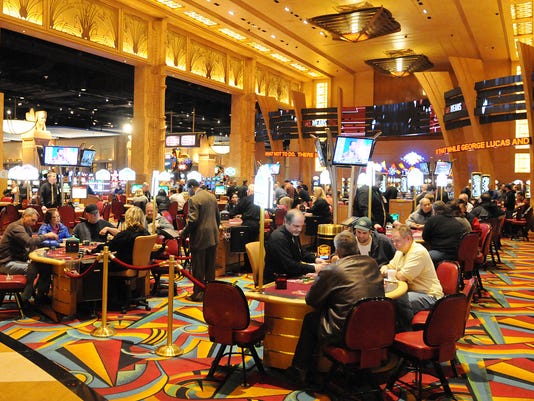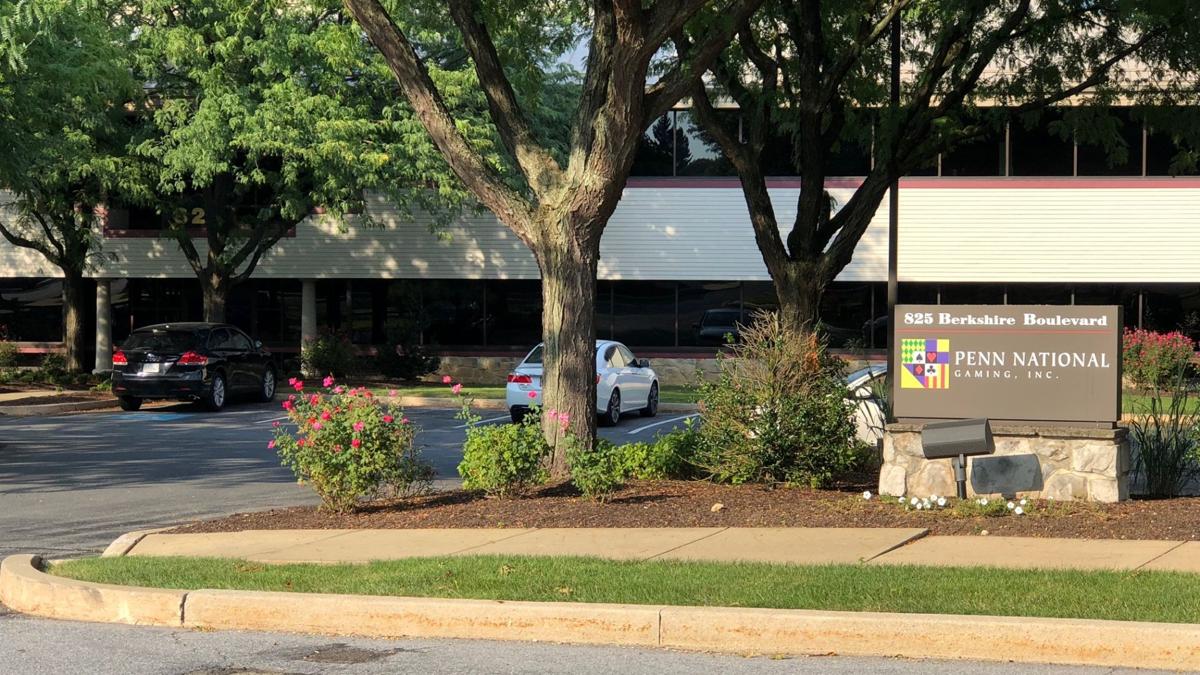Penn National Casino York Pa
The Pennsylvania Gaming Control Board voted unanimously to award a license to a subsidiary of Penn National Gaming to construct the satellite casino in the York Galleria Mall. The mini-casino, which will be affiliated with the company’s Hollywood Casino at Penn National Race Course, has leased an 80,000-square-foot building that until last year was occupied by a Sears department store. The number of slot machines, table games, hotels, food outlets and more at Penn National Gaming’s casinos, hotels and racetracks. Penn National Gaming believes the York Galleria location, along with a second mini-casino license in Berks County, 'will provide us a great opportunity to generate new revenues in the Commonwealth.
Play with your mychoice® card
Hollywood Casino features over 2,377 reel, video slot and video poker machines ranging from one penny to $100, with all the hottest games currently available. And with over 50 table games and 17 poker tables, Hollywood Casino has a game for everyone. Play with your mychoice® card and earn tier points and mycash® to be redeemed throughout the casino.
Two years ago, had you asked Hollywood Casino at Penn National and the residents of Lancaster County if there should be a new casino in the area, both would have resoundingly told you no.
Yet, here we are, with not one but two new mini-casino projects in the Lancaster area. And both are owned by Penn National Gaming.
How did two groups — who said loudly and proudly that they wanted no part of these projects — then end up with two of them? Well, it started with the gambling expansion law that passed in October 2017.
Hollywood had to be defensive about mini-casinos
The final version of the gambling expansion law threw in just about everything but the kitchen sink. One element was the licensing of up to 10 new Category 4s or mini-casinos.
There were plenty of gripes about aspects of the law. Plenty of groups opposed the inclusion of VGTs. The PA online lotteryresulted in a pending lawsuit from PA casinos.
What Hollywood Casino, and parent company Penn National Gaming, was most upset about were the mini-casinos. Namely, they didn’t like how the law seemed intent on invading Hollywood’s turf.
At the time, Eric Schippers, the senior VP for public affairs and government relations at Penn, called things as he saw them:
“This was a money grab, plain and simple. The legislature decided that, rather than being fiscally responsible in cutting programs and spending, it would try to expand its way out of a budget mess. So they’ve done it in a way that will result in significant cannibalization. And the tax rate on online slots is just ridiculous and unprecedented.”
Mount Airy, buffer zones, and a Penn National lawsuit
What drew the most ire from Penn was the buffer zones protecting every PA casino, save for Hollywood. Part of the mini-casino law stated that these new properties could not be within 25 miles of existing Category 1-3 casinos.
For most properties, the buffer zone really extended farther than that as a result of geography. The East Coast casinos create a giant barrier up and down the coast. In the southwestern corner, the three Pittsburgh-area casinos created a big zone as well.
Hollywood, meanwhile, is alone in the center. Take a look:
PA Satellite mapOnly Presque Isle Downs and Hollywood are all on their own. Presque Isle, though, has state borders protecting it to some degree.
What made Penn even madder was that Mount Airyseemed to get special treatment regarding buffer zones. Thanks to a last-minute addition in the rules, Mount Airy’s buffer was three times the size of any other individual property:
Hotels Near Penn National Casino

“A Category 4 slot machine license may not be located in a sixth-class county, which is contiguous to a county that hosts a Category 2 licensed facility.”
A representative from Mount Airy insisted on the language before voting for the bill. The apparent preferential treatment was so egregious to Penn that the company sued the state.
Penn battle mini-casinos on two fronts
In addition to the legal battle, Penn also had to play chess once mini-casino auctions began. Knowing the center of the state was a lucrative spot to put a property, the company dropped a boatload on the first license to ensure no one else got it.
More specifically, the company spent more than $50 million; the most anyone would drop for a mini-casino. Once again, Schippers did not mince words about the situation.
“We’re happy to be the winning bidder. However, as reflected by our pending federal lawsuit against the Cat 4 provisions in the Gaming Act, we’re not happy to have to be in the situation of paying this much to help protect our flank at Hollywood Casino.
The Gaming Act put us in the perverse position of having to essentially bid against ourselves to protect our market share in Central Pennsylvania.”
Location was an incredibly important piece of the puzzle for Penn. They had to select a mini-casino location based on several factors:
- In a municipality opted into mini-casino hosting
- Outside of the buffer zones
- A location that would generate enough business for a new property
- A location that created enough of a buffer to protect Penn from other mini-casino properties
The company selected the area of Yoe, which was 20 miles north of the Maryland border and 50 miles south of the Harrisburg-area Hollywood Casino.
Penn doubles down with another location
Since the initial round of auctions only generated four license sales, the Pennsylvania Gaming Control Board (PGCB) opened up a second round. The second round allowed Category 3 casinos to bid. It also allowed Category 1 and 2 properties with a mini-casino license. The only one to bite?
Penn National Gaming.


The company spent a much more modest $7.5 million for a license at a venue in the West Cocalico Township area. The second mini-casino site was just 43 miles from the first. At last, Hollywood had a significant buffer zone. And it only cost them $57.6 million.
In July, Penn withdrew its suit, but Schippers said even then that the company still believed the process was fundamentally unfair.
“We made a business decision to withdraw our lawsuits against the Category 4 (casino) law. … While we continue to believe in the merits of our arguments, we have chosen to focus entirely on our development efforts for our two new casinos, rather than pursue what is likely to be a lengthy and costly legal battle.”
Here is where Lancaster County comes in
Explaining why Penn National opposed casinos in the Lancaster area is fairly complicated. Explaining why Lancaster County residents want nothing to do with casinos is much simpler. The area, which is mostly Amish, is a very religious population. Most people in Lancaster County believe gambling is a sin.
The opposition in Lancaster County was so resounding that every single township in the county took the time to opt out of hosting a mini-casino property. In fact, more than 1,000 townships across Pennsylvania opted out, leaving minimal opportunities for ideal mini-casino locations.
To understand how much the opted-out communities made an impact, look again at the mini-casino map. The blue areas of the map are communities that opted. The concentrated blue area between Hollywood and the Philadelphia casinos includes Lancaster County. There were only five townships contiguous to Lancaster County that opted in.
Penn National Casino York Pa 2017
Penn announced plans to locate its Yoe-area mini-casino inside York Galleria in September. As part of the process, there was a public hearing where residents and companies could express their feelings about the project. The York Galleria hearing went so poorly that not a single resident spoke in favor of the project. Nonetheless, PGCB approved the license. Now, western Lancaster County had a casino just 10 miles away.
Hollywood Casino Morgantown sandwiches Lancaster with casinos
Unsurprisingly, the Monday hearing for Hollywood’s other mini-casino project was not a positive experience either. Residents turned out en masse to voice concerns. The event was standing-room only, according to local news station WFMZ. The debate lasted for three-and-a-half hours before everyone had a turn to speak about the proposed $110 million casino project.
The standalone Morgantown property plans to offer a full sportsbook as well as up to 750 slot machines and 30 table games. Penn eventually settled on a location in Caernarvon Township, which is near a busy Pennsylvania Turnpike interchange.
Here is where things get tricky. There are actually two Caernarvon Townships in Pennsylvania: One is in Lancaster County; the other, located in Berks County, is right next door. The precise location is at the very edge of the Berks County area, effectively forcing a casino on two municipalities that emphatically said no to a casino.
Moreover, the mini-casino expansion means a county that wanted to be as far removed from casinos as possible now have two that are 43 miles apart from one another, with Lancaster County sandwiched in-between.
Time to call it a day on mini-casino expansion?
When PGCB Executive Director Kevin O’Tooleappeared before the PA House regarding the new state budget, mini-casinos came up. Thankfully, O’Toole was quick to say there is no rush to unload all 10 licenses. His advice was to “take a measured approach.”
“Let’s see if these six additional forms of gambling mean Pennsylvania can continue to succeed,” he added.
The reason there are only five mini-casinos is that properties did not see any value in the remaining locations. Short of convincing municipalities to opt back in, there are few opportunities left.
Some communities would like a mini-casino. The profitability and sustainability of those communities are just not where they need to be. Take, for example, Reading, PA. The town openly lobbied for a property. In fact, it is just 15 miles away from the selected Morgantown location.
You would think working with Reading would be the solution that makes everyone happy. But from a commercial standpoint, it just doesn’t make sense for Penn to pick a location away from the highway instead of where two major interstates intersect.
At the end of the day, business is business. But you have to wonder if the approach to mini-casinos was the way to expand land-based casinos. Because, pending PGCB approval, both Penn National and Lancaster County now have two casinos they never even wanted.